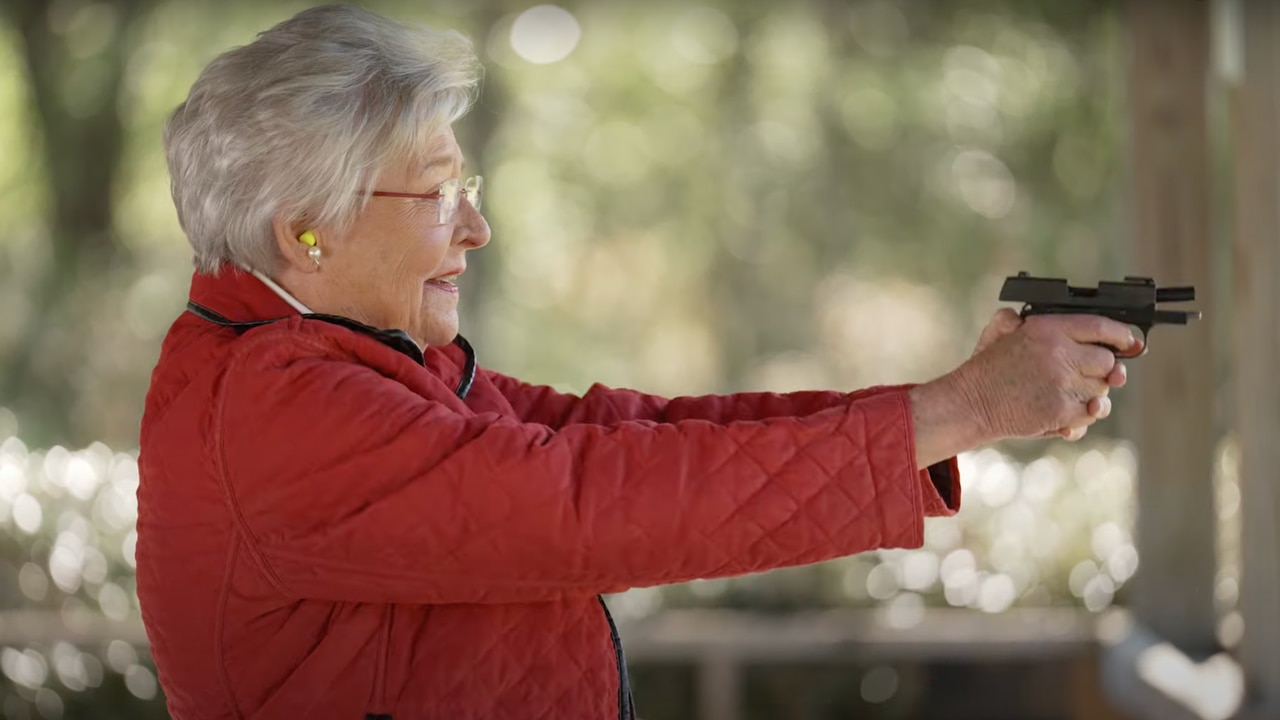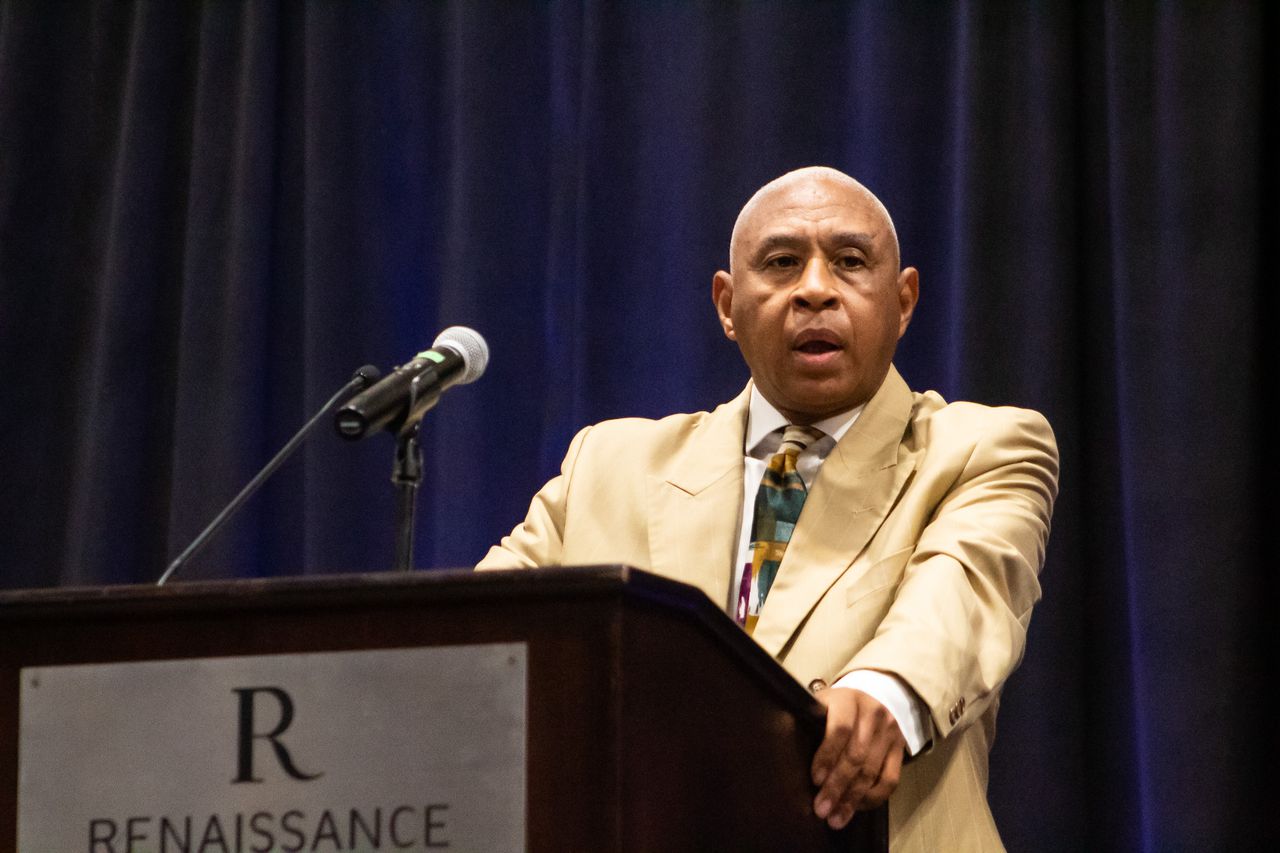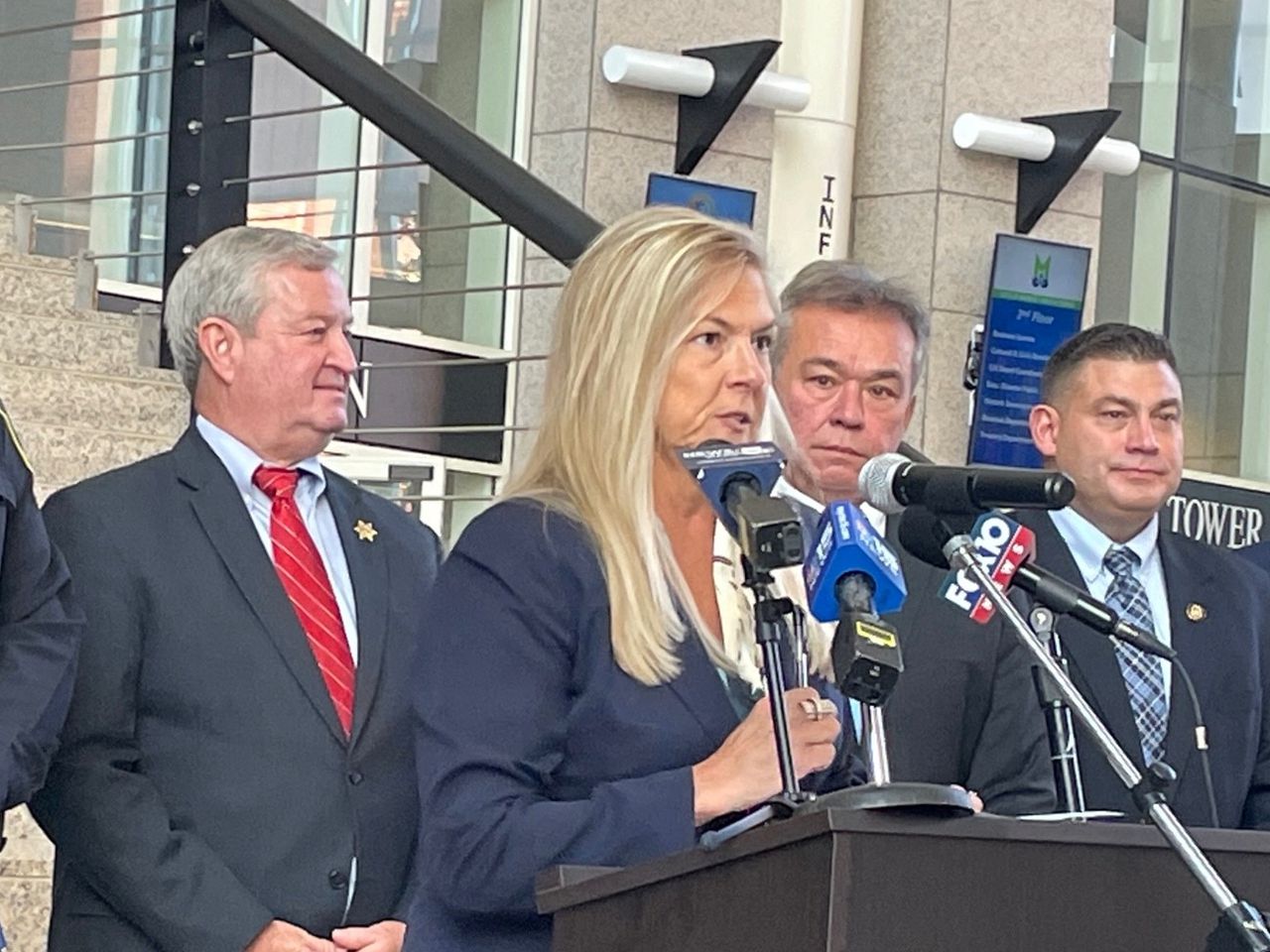How Alabama’s lack of midterm political intrigue harms itself
Almost five years have passed since a special election for the U.S. Senate animated Alabama politics like the state rarely experienced before.
Democrat Doug Jones defeated Republican Roy Moore in a contest that captured international media attention and was the focus of U.S. politicians far and wide.
Since then, normalcy has returned. And so has the lack of national attention and media storylines. Republicans are expected to sweep through the statewide contests on Tuesday, leaving only a few down ballot contests for the Alabama Legislature or for sheriff and district attorney, up for any sort of competition.
Read more about Election 2022:
“There is nothing to suggest from this election cycle that Alabama is anything but a crimson red state,” said Jess Brown, a retired political science professor at Athens State University and a longtime observer of state politics.
Most political observers believe the lack of political competition hurts Alabama. Without a competitive two party state, salient issues do not receive much discourse and no debate on the campaign trail, they say. Experts point to the state’s low rankings in grade school test scores, and health measures that they believe should warrant more robust debates ahead of elections. Others, such as the Alabama Policy Institute, argue that tax reform is not getting any campaign attention.
Alabama is not alone. Only four states including Georgia are considered a “toss up” during Tuesday’s midterm election by the Cook Political Report. The races in Nevada, Arizona, and Pennsylvania will also determine the control of the Senate.
In the U.S. House, only 8% of the chamber’s 435 seats are labeled a “toss up” by Cook. A whopping 81% are considered a lock for either the Republicans or Democrats.
Casey Burgat, legislative affairs program director at George Washington State University, said that two things matter when deciding if the state’s political climate matters from a national perspective:
- The candidates, and whether scandal or personal deficiencies draw media attention, such as the case in the Senate races in Pennsylvania and Georgia.
- Competition, or the “horse race” of the election, and whether polling tightens leading up to the election day.
“Alabama doesn’t have either of these things going on,” said Burgat. “It’s a one-party state where anyone who wins the Republican primary will win the general election.”
He added, “”The purple states win out. The majority status will be decided by one or two seats (in the Senate) and the competitive among them will get the lion share of the attention.”
Some political observers say that next fall will be more active than this fall’s runup to the general election. Why? Presidential campaigns will be gearing up ahead of the 2024 elections, and the GOP candidates are likely to make campaign swings through Alabama ahead of the primaries.
“We will not be off the radar during the presidential cycle,” said Jonathan Gray, a Republican political strategist based in Mobile.
Down ballot worries
Mobile County District Attorney Ashley Rich speaks in support of the “Aniah’s Law” constitutional amendment during a news conference on Wednesday, November 2, 2022, at Government Plaza in downtown Mobile, Ala. Some experts worry that not enough Alabama voters will show up during the general election to weigh in on the constitutional amendments. (John Sharp/[email protected]).
For now, the lack of storylines heading into the general election are telling and the general overall lack of political intrigue has some observers concerned that few voters will cast votes in the crucial constitutional amendments that appear down ballot.
Voters are poised to elect Republican Katie Britt to replace longtime Senator Richard Shelby, and Gov. Kay Ivey is likely to cruise to re-election in what political observers anticipate is her final political campaign.
Democrats are not even fielding candidates in six of the statewide races, leaving an opening for the Libertarian Party – on the Alabama ballots for the first time in 20 years – an opening to achieve 20% of the vote in a race that would allow them ballot access in two years.
Alabama Secretary of State John Merrill anticipates 1.65 to 1.85 million Alabama voters going to the polls, or anywhere from 45% to 50% of the electorate. That would be on par with the 2018 midterms, when 50% of Alabamians showed up to vote.
Some are skeptical for a 2018 repeat when Tuscaloosa Mayor Walt Maddox ran against Ivey. Maddox’s campaign spent $2.6 million during the 2018 election for governor but finished almost 20 percentage points behind Ivey. In this year’s governor’s race, Ivey is being challenged by Democrat Yolanda Flowers, whose campaign has spent $10,709, according to campaign finance records.
Turnout was very low during the lead-up to the general election and during the more competitive May primaries. Only 23.4% of the electorate showed up for the May 24 primary. The runoffs in June drew 13% of the voters.
Quin Hillyer, a conservative senior columnist and editor for The Washington Examiner, said he is worried that voters will stay home instead of showing up to weigh in on the 10 constitutional amendments.
“I fear that would-be voters might not be paying enough attention to important things on the ballot,” Hillyer said. For example, he said that Constitutional Amendment 1, otherwise known as “Aniah’s Law” is of “upmost importance” to pass as it would allow courts to hold defendants without bail for an expanded list of serious offenses.
“Conservatives and liberals alike should support these measures and some others, but sometimes people vote ‘No’ just because of distrust of authority when they aren’t familiar with the issue,” Hillyer said. “Voters should resist the ‘No’ temptation and educate themselves on the importance of these initiatives.”
Said Regina Wagner, political science professor at the University of Alabama, “Voters are not tuned in when there aren’t any competitive races, so I don’t expect them to be too aware of issues around the constitutional amendments.”
‘Not good for taxpayer’

Alabama Gov. Kay Ivey is using guns to brush up her conservative bonafides, but it’s not what’s in her purse Alabamians need to worry about — it’s who’s in her purse. (Screenshot, Ivey campaign ad)
The lack of awareness about the amendments, and the issues they reflect, is part of an overall problem with a lack of competitiveness in Alabama, observers say.
In the lead-up to the May’s primaries, GOP candidates for office focused on social issues considered “red meat” for partisan voters such as gun rights, abortion, and LGBTQ issues.
But any robust discussions over Alabama’s low math scores, or access to health care and broadband were mostly absent. Few candidates dived into the lack of a lottery in Alabama, which continues to stir emotions on social media and beyond. The state’s prison system, though it received some attention in the primary, has mostly been void of a serious campaign-related debate.
Alabama is also one of 12 states that have not expanded Medicaid under the 12-year-old Affordable Care Act, and that issue did not get campaign-related attention.
“The lack of competitive two-party elections is a disservice to the state,” said Zac McCrary, a Democratic pollster based in Montgomery. “Alabama remains toward the bottom of the list of priorities including schools and health care, the state prison system is in crisis, and Alabama is losing too many young people to cities like Atlanta and Nashville and Dallas.”
He added, “Elections should be a competition of ideas and vision for the state, but in a one-party state, too often candidates avoid the real challenges and focus just on throwing red meat to the party base who vote in low-turnout primary elections. That means 20% of Republican primary voters are setting the agenda for 100% of Alabama’s citizens.”
Brown, the retired professor at Athens State University, said the lack of competitiveness and the dominance of one political party leads to an unhealthy political environment, and one that ‘is ultimately not good for the taxpayer.”
At least one organization is pushing Alabama Republicans to consider tax reform as one of its top priorities and is concerned that the issue is not resonating enough during the campaign season.
Justin Bogie, senior director of fiscal policy at the Alabama Policy Institute — a non-profit organization that advocates for limited government and free market policies — said if the races were more competitive, “perhaps more candidates would be putting themselves out there for things like meaningful permanent tax cuts.”
Bogie and the API have pushed for months for Alabama Republicans, after receiving a financial windfall of COVID-19 money, to consider adopted tax cuts or eliminate unpopular taxes like the sales tax on grocery sales.
Alabama Republicans have not put forward a permanent cut. They have discussed the possibility of tax rebates, something which Bogie and others say is not good enough at a time when other states are pressing forward with income tax cuts or relief of their state’s tax on fuel purchases.
Bogie is disappointed in Ivey’s stance of supporting rebates, but not permanent tax reform. The governor has said it would be irresponsible to use COVID-19 money to make sweeping changes.
“Many other states have enacted permanent tax cuts, and in some cases, rebates on top of those cuts,” Bogie said. “Alabamians deserve a robust debate and for lawmakers to have to go on the record as to where they stand.”
Weakened Democrats

Alabama Democratic Party Chair Randy Kelley speaks to a crowd during the statewide convention in Montgomery on Oct. 14.Sarah Swetlik
Much of the problem stems from a weakened Democratic Party in Alabama, which recently underwent a wholesale change in leadership.
Randy Kelley, the new party chairman, said while he believes there is excitement among Democrats heading into the election, he says there is not much he can do to stem the tide of uncompetitive statewide contests right now.
“Particularly, at this juncture, I can’t do much about it,” Kelley said. I just got elected in August. But that’s a challenge.”
Kelley is blasting the Alabama Republican Party as the “white flight party” with a representation that is the result of the Civil Rights Act of the late 1960s and the passage of Brown v. Board of Education, a landmark U.S. Supreme Court ruling that desegregated schools.
He said the 1954 court ruling “galvanized the religious crowd and hate groups that went to the Republican Party.”
“One thing I see in Alabama is you have this crowd still fighting the Civil War and who are voting against their own interest,” said Kelley. “The Republicans don’t even campaign on anything. I’m just hearing issues they are against and the people who they are against.”
Kelley also blasted the Alabama Republicans for focusing on protecting Confederate monuments than taking the steps to move the state forward.
The Alabama GOP did not respond to a request for comment.
But political observers are concerned the Alabama Democrats do not have the infrastructure in place to mount any serious statewide challenge. Kelley, an ally of Joe Reed—longtime chairman of the Alabama Democratic Conference, the state’s largest Black political organization – touts the party as having the most Black elected leaders, per capita, than any other state.
Alabama, though, remains one of a few states in the U.S. since Reconstruction where only white candidates have won nonjudicial statewide contests, according to a 2016 analysis by The Associated Press.
Brown said he does not see the Democratic Party “breaking 40 percent” during the election. He said a return in the “high 30 percentile” represents the party winning the votes of their Democratic base.
“The magic number right now in Alabama is 38 percent and until (the Democrats) can find a way to nominate candidates that can attract 38 percent of the white vote, they will continue to lose election after election and it will be the same outcome,” Brown said.
Steven Taylor, a political science professor at Troy University, said the only hope for Democrats is to nominate “quality candidates” like Jones and hope for the best, such as what happened during the 2017 special Senate election.
“But such scenarios cannot be counted on to occur with such frequency,” said Taylor. “Of course, even without facing a poor-quality opponent, Democrats need to offer up candidates who can at least generate some level of attention, which they failed to do in either of the major state-level races this cycle (governor and Senate). The problem is that it is difficult to recruit quality candidates if they are fairly certain to lose.”
Reversing the trend is even more difficult in a state like Alabama where voters are considered among the most “inelastic” in the county, a term that suggests they do not ebb and flow with the national mood and are predictable with their vote.
In other words, most voters are going with either a Democrat or a Republican during elections
The state is also one of the few in the U.S. with straight-party voting, which means voters can choose a political party’s slate of candidates at the top of the ballot without having to go through the rest of it.
Said Taylor, “it is extremely difficult to get large numbers of voters to change party allegiance.”
